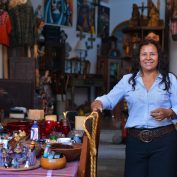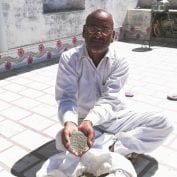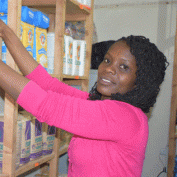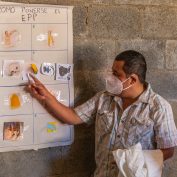What is the Role of Digitalization in a Post-COVID World?
When the COVID-19 pandemic disrupted the livelihoods of millions of entrepreneurs last year, digitalization offered small businesses around the world a promising solution. In this Q&A, TechnoServe’s Global Entrepreneurship Director, Juan Carlos Thomas, speaks with the Executive Director of the Argidius Foundation, Nicholas Colloff, and Dalberg Advisors’ Global Knowledge Lead, Kusi Hornberger, about the future of digital technology for supporting entrepreneurs.
Lasting Impact Spotlight: Bhawarlal Sharma
In this series, we check back with TechnoServe program participants who were previously featured on our blog, documenting how their lives have changed and progressed.
Equipping Young Entrepreneurs with Business Expertise in Africa
In East Africa, formal employment opportunities are often scarce, and entrepreneurship presents a path toward economic independence for many young women and men. TechnoServe is helping small shop owners in Kenya, Nigeria, and Côte d’Ivoire become more profitable by connecting them with the knowledge, training, and tools they need to become successful retailers.
A New Report Shows How COVID-19 Has Challenged Farmers and Entrepreneurs. Here’s How the Private Sector Can Help.
The COVID-19 pandemic has created enormous economic challenges across Latin America, Africa, and South Asia. TechnoServe’s new report tracks the changes to the livelihoods of farmers and entrepreneurs over the past year and highlights the private sector’s role in helping them navigate the crisis.








